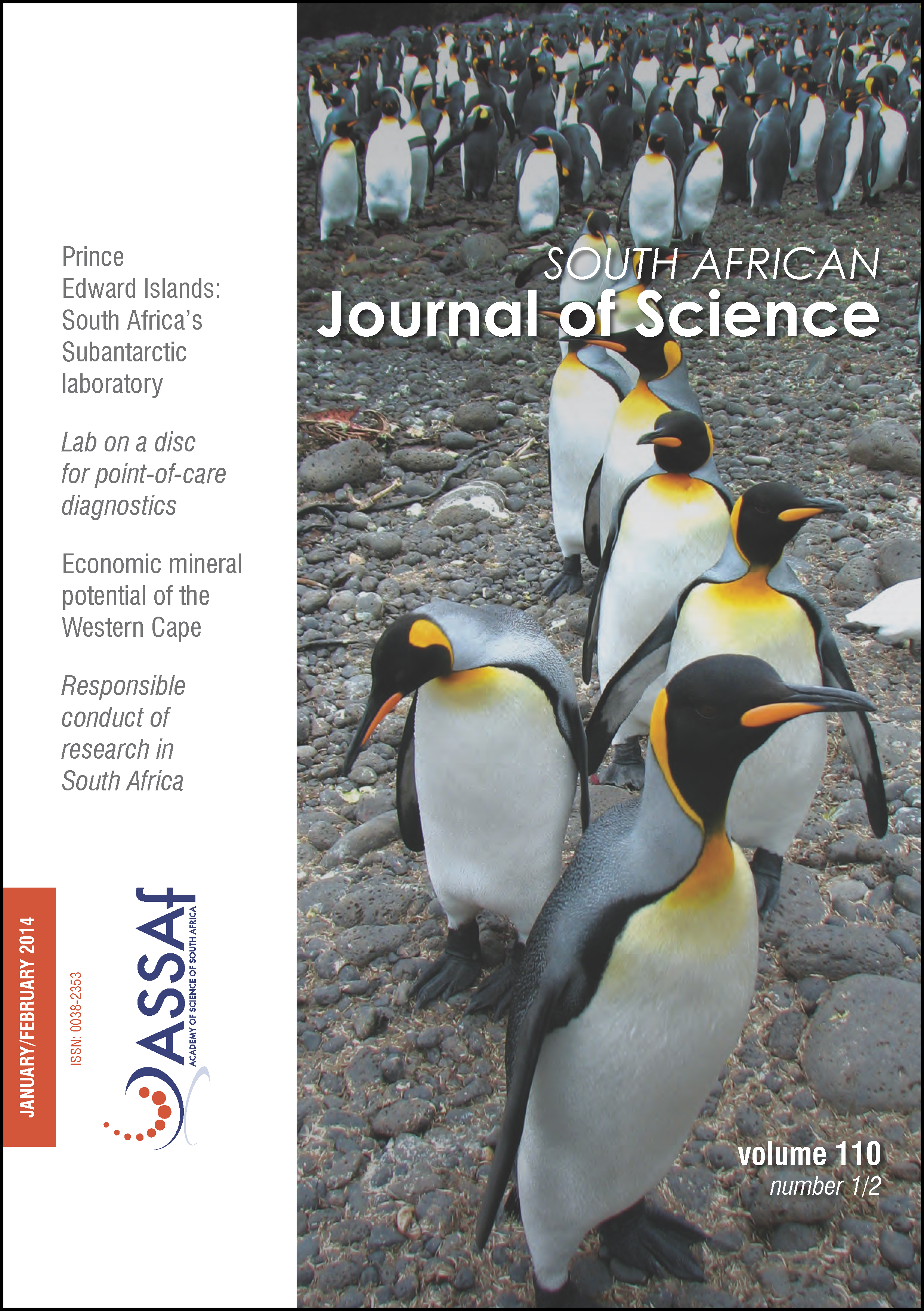The first-year augmented programme in Physics: A trend towards improved student performance
DOI:
https://doi.org/10.1590/sajs.2014/20120096Keywords:
problem-based learning, access, extended curriculum, language, study techniquesAbstract
Amidst a critical national shortage of qualified Black graduates in the pure and applied sciences, the University of KwaZulu-Natal has responded to a call from government for redress by launching the BSc4 Augmented Physics programme. In this paper, the methods employed to foster learning and to encourage student success in the Mechanics module of the Augmented Physics programme are described and discussed. The use of problem-based learning and a holistic learning policy that focuses on the emotional, physical and knowledge development of the student seems to have yielded higher throughput in the first semester of an undergraduate programme in Physics. Furthermore, the results point to an increase in the conceptual understanding of the student with respect to Mechanics. When appraising this success, the results of the 2007–2009 cohorts, with and without teaching interventions in place, were analysed. These initial analyses pave the way for a course designed to benefit the student and improve throughput. These methods are not unique to Physics and can be adapted for any module in any country.
Published
Issue
Section
License

All articles are published under a Creative Commons Attribution 4.0 International Licence
Copyright is retained by the authors. Readers are welcome to reproduce, share and adapt the content without permission provided the source is attributed.
Disclaimer: The publisher and editors accept no responsibility for statements made by the authors
How to Cite
- Abstract 728
- PDF 522
- EPUB 190
- XML 227












.png)